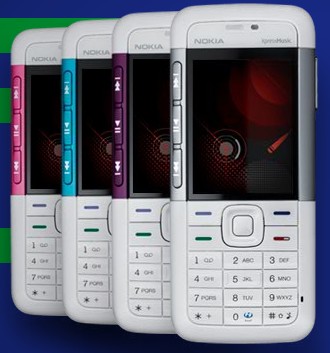 Nokia had years to get things right. They had billions of dollars in revenue and, quite literally, the ear of the world. iPhone? Feh. For the longest time iPhone was a Cybiko compared to the reach and influence of Big Sininen. So what the heck happened?
Nokia had years to get things right. They had billions of dollars in revenue and, quite literally, the ear of the world. iPhone? Feh. For the longest time iPhone was a Cybiko compared to the reach and influence of Big Sininen. So what the heck happened?
I first started noticing Nokia’s steep decline in about 2007. It was at the launch of the XpressMusic, a music phone for the masses that, for once, actually appeared in the US. This was about the time the iPhone began washing on the shores of Finland like a pernicious parasitical plant. The company released the XpressMusic as a cheap, entry-level phone for folks who wanted to listen to music. However, at the core of this move was Nokia’s consistent disregard for the changing status quo.
By 2007, the smartphone was slowly dying. Windows Mobile and Symbian, while arguably the most popular end-user platforms around the world, were light years behind than the upcoming Android and iOS and users were already pinning their hopes on future technology including a nascent WebOS.
Inherent in the XpressMusic was a certain distain for change. But wasn’t that disdain earned? After all, Nokia had spent millions sending people to the plains of the Serengeti to figure out what sheep herders ages 15-18 were looking for. The result of all that anthropological study? A refusal to move to MicroUSB until very recently and the addition of a flashlight to some models. “Look at us,” they said. “We’re phonemaker to the world.” And then the world got what Nokia wanted, and not vice versa.
So as iOS rose and Android came to dominate, Symbian and MeeGo looked like road accidents. The XpressMusic, today, looks like a phone from 2000. It is laughably primitive.
Thankfully, Nokia realized that the smarphone – and in turn, Symbian – is dead.
What we have now are App Phones. Almost every phone on the market supports email and web at this point, even some lower end models, and if all goes according to plan, even iOS will come in a low cost wrapper.
To be fair, Nokia had the developing world sewn up. However, with the rise of Shanzai and the ease with which Android can be ported to devices of suspicious provenance and quality, even that world is slowly closing to Nokia.
So that’s why Windows Phone 7 makes sense. Nokia, a giant, can pin its hopes on Microsoft, another giant. No one got fired for picking Microsoft, as the old song goes, and in terms of shareholder value, it’s a good move.
To be fair, Microsoft was slow to react to this sea change as well. Windows Phone 7 is, at best, a Hail Mary pass, an interesting if underdeveloped platform that Microsoft did not have the leisure to perfect, at least in this iteration. Many of us will carry WinPho handsets one day, but that day won’t come until about 2012 when, potentially, Nokia starts selling a critical mass of handsets to IT departments who can’t see a way out of the Windows/Exchange Server trap. And rest assured there are many such consumers. Windows Mobile wasn’t wildly popular in the whole of Europe because it was a lot of fun. It was popular because RIM dropped the ball on localization and WinMo, for better or worse, was the best general purpose smartphone platform available to the Pierres, Leszeks, and Vlads of that world.
So where to now? Nokia will make it out of this rough patch – they are too big to fail – and they will survive. They won’t be happy with their position on the handset spectrum as this move essentially punches them down into the scrum of handset makers that create commodity, as opposed to ground-breaking, devices. However, LG, Samsung, and Sony Ericcsson are still make some money in handsets (although HTC is gobbling up their lunch while they fiddle with branding).
An aside: You know what irks me? That Nokia never got tablets right. They made a number of tablet-like devices but could you imagine a solid Nokia device running on a 10-inch screen with great battery life, an acceptable interface, and 3G, potentially released in 2006 when there was still a chance? Very heaven. Instead, Nokia released a freaking netbook.
Regardless, Nokia has a long road ahead of it and, given that ruisleipä and reindeer carpaccio are very good, we want Finland’s native son to survive and bring us many more handsets. Here’s to the death of the old Nokia and here’s to the breech birth of a new one.